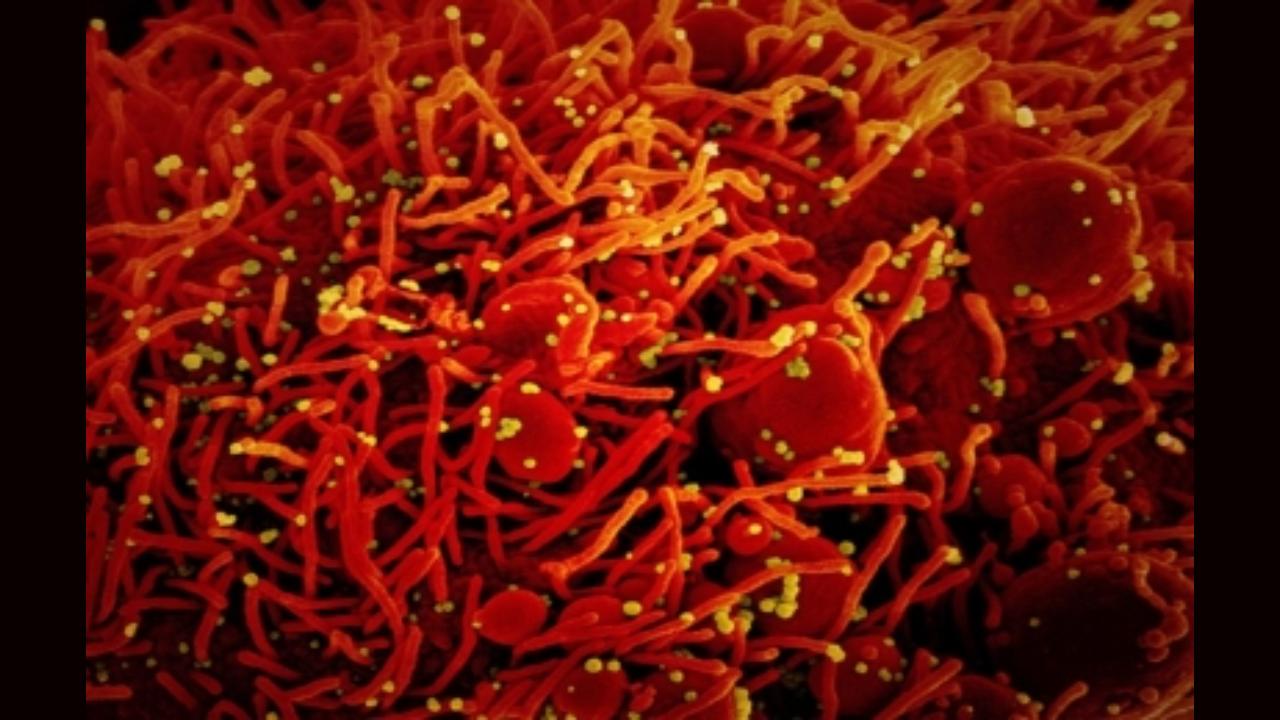The World Health Organisation has classified the new Covid-19 variant detected in southern Africa this week as the 'Variant of Concern' following the Technical Advisory Group meeting on Friday. Over 100 cases have been detected in South Africa, where the new strain is slowly becoming the dominant one

Image for representation. File pic/IANS
As the world reopens after 18-20 months of the Covid-19 pandemic and lockdowns, a new variant of the coronavirus -- called B.1.1.529 -- has been identified in South Africa that has left the scientific community worried, as they fear that this new strain could fuel outbreaks in several countries and cripple health systems once again.
ADVERTISEMENT
The World Health Organisation (WHO) has classified the new Covid variant detected in southern Africa this week as the 'Variant of Concern' following the Technical Advisory Group meeting on Friday.
"Based on the evidence presented indicative of a detrimental change in Covid-19 epidemiology, the TAG-VE has advised WHO that this variant should be designated as a Variant of Concern and the WHO has designated B.1.1.529 as a VOC, named Omicron", said the global health body in a statement.
Over 100 cases have been detected in South Africa, where the new strain is slowly becoming the dominant one.
Here are five things you should know about this deadly super Covid variant that has forced a number of countries, including the UK, Israel, Italy and Singapore, to restrict travel from South Africa and other countries in the region.
1. According to South African health officials, the 'B.1.1.529' variant has many more mutations than scientists expected, especially after a severe third wave, which was driven by the Delta variant. Many of the mutations are of concern for immune evasion and transmissibility.
2. B.1.1.529 carries a high number of mutations in its spike protein, which plays a key role in the virus' entry into cells in the human body. The B.1.1.529 variant has 50 mutations overall, including more than 30 on the spike protein alone which is the target of most current Covid vaccines.
3. The World Health Organisation (WHO) has said it will take a few weeks to understand the impact of the new variant. Scientists have said it is the most heavily mutated version yet, which means vaccines, which were designed using the original strain from Wuhan in China, may not be as effective. The WHO has called a meeting to discuss B.1.1.529 and decide if it will be officially designated a variant of concern.
4. First identified in South Africa this week, the strain has spread to nearby countries, including Botswana. Israel has identified a case of a Covid-19 variant with a large number of mutations "in a person who returned from Malawi". Two cases have been detected in Hong Kong. India has called for rigorous screening of passengers from South Africa, Botswana, and Hong Kong.
5. There are still speculations floating around the variant's origin. According to Francois Balloux, Director of the London-based UCL Genetics Institute, the new strain "likely evolved during a chronic infection of an immuno-compromised person, possibly in an untreated HIV/AIDS patient".
Also Read: Shaken, stirred, soul-warming: Cocktails that will keep you toasty this winter
 Subscribe today by clicking the link and stay updated with the latest news!" Click here!
Subscribe today by clicking the link and stay updated with the latest news!" Click here!







